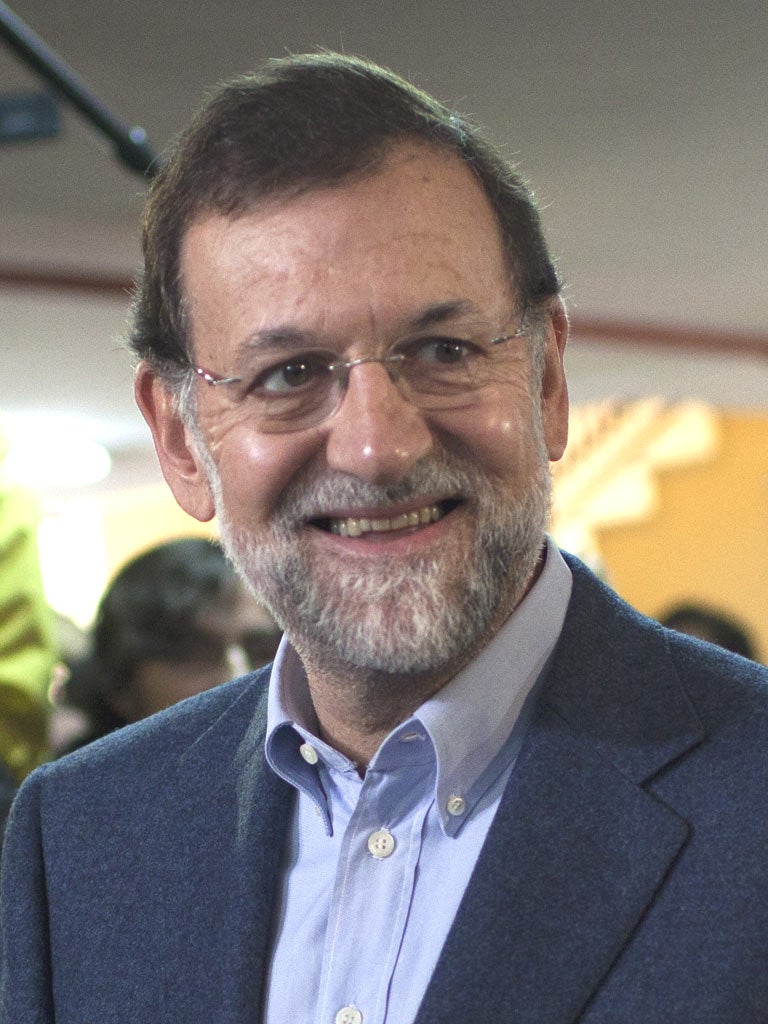Spain's right heads for a landslide election win

Your support helps us to tell the story
From reproductive rights to climate change to Big Tech, The Independent is on the ground when the story is developing. Whether it's investigating the financials of Elon Musk's pro-Trump PAC or producing our latest documentary, 'The A Word', which shines a light on the American women fighting for reproductive rights, we know how important it is to parse out the facts from the messaging.
At such a critical moment in US history, we need reporters on the ground. Your donation allows us to keep sending journalists to speak to both sides of the story.
The Independent is trusted by Americans across the entire political spectrum. And unlike many other quality news outlets, we choose not to lock Americans out of our reporting and analysis with paywalls. We believe quality journalism should be available to everyone, paid for by those who can afford it.
Your support makes all the difference.Spanish voters headed to the polls yesterday amid widespread predictions that veteran conservative leader Mariano Rajoy would win a landslide victory against the incumbent Socialist Party as the country struggles with high unemployment and crushing levels of debt.
A win for the right-wing Popular Party would make Spain the third eurozone country in less than a month to throw out its governing party in an attempt to save itself from economic crisis. Opinion polls, largely in favour of the PP since April 2009, have given it a lead of up to 20 points in recent days over Socialist Party candidate Alfredo Perez Rubalcaba, the former interior minister. Spain's unpopular Premier, Jose Luis Rodriguez Zapatero, did not stand for re-election.
If the polls are correct, the PP's return to power after seven years in opposition could see it win 190 of the 350 seats in the Spanish Parliament, the most for any party in almost three decades.
A major victory for 56-year-old Mr Rajoy would give the PP room for political manoeuvre as Spain braces itself for more twists in a seemingly interminable spiral of unpopular austerity measures.
The Socialist Party has been hamstrung by widespread dissatisfaction amid a recession that has seen unemployment triple to 22 per cent since 2008 and pushed 21 per cent of families below the poverty line.
Mr Rajoy has been ambiguous on the detail of his party's plan to pull the nation back from the brink, and the lack of clarity is believed in part to be what spooked the markets last week, sending Spain's borrowing costs soaring.
"I guarantee we will get out of this one," Mr Rajoy told party followers at the final campaign meeting in Madrid on Friday. "Things won't be resolved from one day to another, though, we won't wake up on Monday with everything sorted out."
With public debt at a 14-year high and an estimated €41bn of savings needed in next year's budget, he has promised cuts "in all areas barring pensions". Victory for Mr Rajoy would see Spain follow Italy and Greece in changing leadership in recent weeks, though this time for elected politicians rather than technocrats.
By yesterday afternoon there were signs that turnout could be poor, with the numbers voting down 2.5 per cent on 2008, possibly due to bad weather across much of Spain.
Join our commenting forum
Join thought-provoking conversations, follow other Independent readers and see their replies
Comments